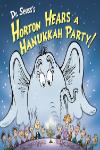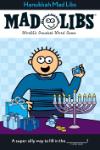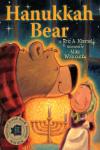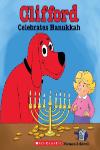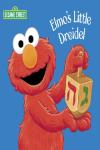Jewish integrity for resilience; thoughts on Chutzpah, Wisdom and Wine: The Journey of an Unstoppable Woman by Jodi Samuels

Buy this book at Amazon or for Kindle
I expect three things from a good autobiography, besides getting familiar with the author’s life: I gain new knowledge about an aspect of the world, through reading about a life I have not lived, I learn something about myself by comparing the author’s experiences with mine and I am entertained while reading it. You get all of this and much more from Jodi Samuels’ “Chutzpah, Wisdom and Wine: The Journey of an Unstoppable Woman.” The most inspiring, at least for Jewish readers, from these, is an outstanding example of how to live Torah/Jewish values with integrity and without compromise. The book also exposed me to the inner and outer challenges one can face as a parent of a child with Down syndrome and its systemic level causes of effects.
What I admire most about Samuels is the combination of brutal honesty about herself, the ability to laugh at her own experiences, the capability of self-reflection and learning a lesson from any situation, and her resilience. These qualities are the ones that are needed for everyone in our postmodern world and what makes her an inspiring role model. Without knowing, accepting, and challenging yourself there is no way one can find her/himself in a world where change is faster than ever. Samuels certainly knows that she is not just a Type A person and a serial entrepreneur, but also what makes her tick or can bring her down. Yet she also never seems to consider the “getting to know yourself” project finished. As we read her adventures and her reflections we also learn processes and tools on how to face your challenges and yourself. Some of us have an innate ability to laugh at ourselves. Others, like me, have to learn it the hard way and this book provides a great example of why and how to do it. Both have to do it with resilience
What can you learn about the world from reading this book? If you haven’t lived in South Africa, New York, or Israel then you certainly gain valuable insights and tips about what it is like there. Even if you did, you may not have crystallized the lessons as she did. Let me share an example from each:
- South Africa: “When I was growing up , the government banned the media from publishing photos of Mandela.” (page 32) and then Samuels goes on, with the clearest analysis I ever read to a conclusion: “The apartheid regime has manipulated all our minds.” Having been brought up behind the iron curtain this rang a bell, albeit I grew up in a regime that manipulated our minds with a different agenda.
- New York: “Gavin likened New York life to the cycles of a washing machine: soak, spin, dry. People eventually got out of the cycle because it was soaking, spinning or wringing them dry.” (page 172) I have never lived in the Big Apple, aka the city that never sleeps, yet I find this description the most succinct and congruent with the picture I have of NYC.
- Israel: Read the whole of chapter 13, which has a short list of stories that can happen “only in Israel” and a much longer list of accurately observed and described social norms and rules. My favorite (and most foreign to my own temperament) is the first one of these: “‘No’ does not really mean no. No is actually a starting point for negotiation.” (page 195)
I like to learn and I have a BA in Sociology, just like Samuels has. While I sympathize with her when she describes her feelings as a parent of a child with Down Syndrome it is more fascinating for me to follow her discovering and facing the challenges that society threw at her and her children, because of the person with an extra chromosome. A good third of the book deals directly or indirectly with the topics that arose from this part of her life. When I had a quick look at the Facebook page dedicated to Caila and mentioned in the book ( fb.com/cailysworld ) I realized that the issues of inclusion and mainstreaming are ongoing. E.g. on page 103, she wrote “What we fail to teach our children and what the community fails to see is that we need inclusion and acceptance, not superficial chesed.” and just last week she wrote on the aforementioned Facebook page “Real kindness is when you are changed by the act, when you open your heart, your home and schools to our children.” Becoming aware of your own biases is a lifelong process, so I really appreciate the various levels of the possible ways of societal inclusions of the “other” and the obstacles against it that this book made me face.
The third major thing that the book taught me has to do with Judaism. Where do you place yourself if you think about knowledge of Judaism–including values, history, religion, customs, Torah– as a spectrum? I think I am somewhere on the top of the lower third. If you are at a similar or lower level you can certainly gain more from this book. For example, if you just read the short quotes at the beginning of each chapter, the majority from Jewish sources, you get a wonderful lesson in Jewish ethics. I happened to be familiar with all of the quotes and it was still reassuring and educational to see them curated this way. The difficult decisions the author made were always at least influenced by, if not outright based on, these values. She and her family are a living testament on how to live with Jewish integrity (the Modern Orthodox way) in the world and at the same time not separated from it to the extent that some of the Ultra-Orthodox do. The choice of integration into the wider community, seeing/traveling the world, getting exposed to different cultures in itself reflects the Jewish value of openness, bettering yourself, and marveling at God’s creations.
I am a subjective reader and reviewer. I am very conscious that when I read I compare and contrast the subject to my own experiences. I found quite a few similarities between Samuels and me, including actively working on being a (better) parent and a spouse, a fascination with peoples and places, an interest in traveling, a deep desire to make the world a better place. There are of course significant differences, but those are less interesting. I challenge you to read the book, discover how you are different from the author, and find out what you can learn from her. Or you can just enjoy the ride along with her as the book is filled with funny anecdotes, exciting adventures, and sweet memories. Ironically, as she wrote on “No matter how much we study or read, experience is a more valuable education.” (page 229). So go ahead and internalize her motto too “My life motto is Lech lecha. Go. Or, just do it.” (page 174)
Disclaimer: I have received an electronic copy of this book from the author for review. I also received a fee for the review which did not affect my review in any way.
Related links
- Jewish International Connection of New York, the organization Samuels founded
- Jodi’s Voice, the author’s professional and personal blog
- Jodi Samuels’ profile on LinkedIn and on Facebook
The book was published in 2020.
Publisher’s description:
From Johannesburg to Jerusalem, with a stopover in Manhattan, Jodi Samuel’s mission is to change the world, one small, unique step at a time. As an entrepreneur, international speaker, special needs advocate and super mom, on any given day you may find Jodi starting a new business, organizing a community event or conducting an interview with the Wall Street Journal while riding a camel in Morocco.
But if you’re one of the thousands who’ve attended her events, you may be surprised to learn that Jodi was once petrified to take the stage. Jodi’s ability to lead grew with experience, determination, faith and courage. Jodi recounts the seminal moments that shaped her life from being held up at gunpoint in South Africa to living under rocket attacks in Israel and the shocking diagnosis of Down syndrome for her youngest child that turned her into a passionate advocate for children with special needs.
Jodi shows us that with passion, resilience and humor, we can face life’s challenges and come out on top. Her inspiring journey, peppered with a dose of irreverence, is about learning to overcome fear, adapting to unexpected situations and applying time-honored Jewish values to everyday challenges. In short, it’s a story of playing — and winning — the hand you are dealt.
Year first published: 2020

